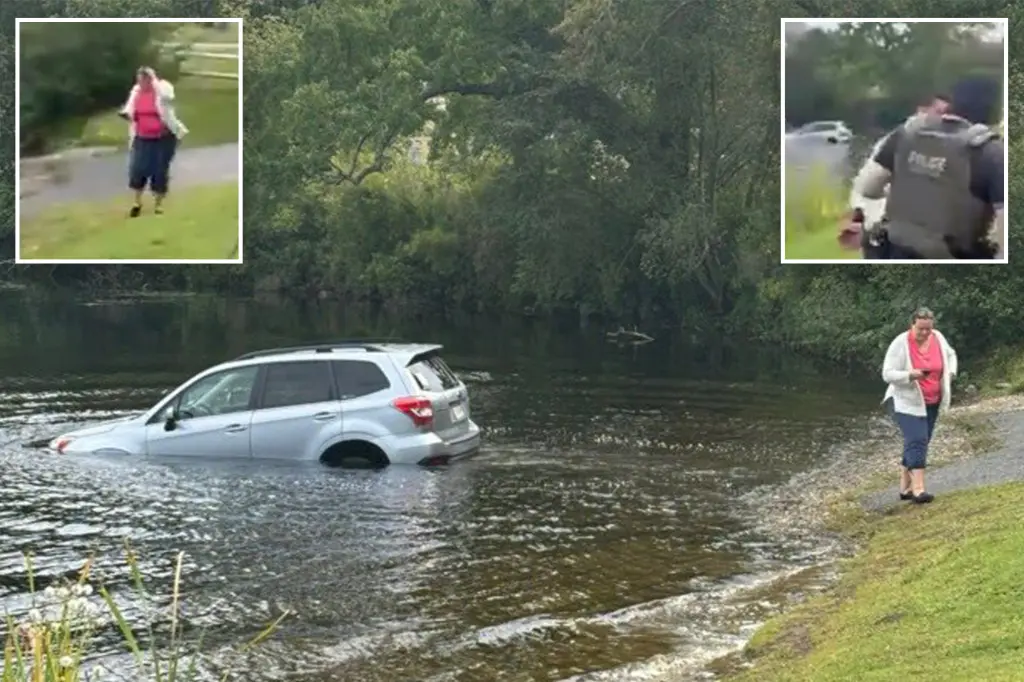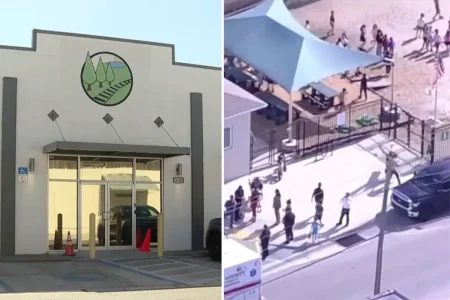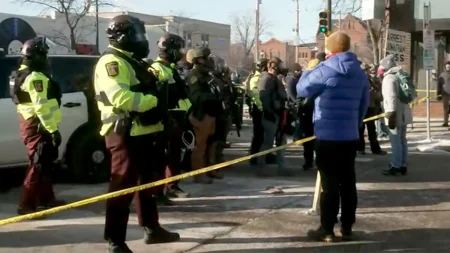When Protest Meets Mishap: A Day on the Water’s Edge
In a small town nestled in Worcester County, Massachusetts, approximately 40 miles west of Boston, a moment of passionate civic engagement recently took an unexpected turn. Upton, Massachusetts became the scene of an incident that perfectly captures the unpredictable nature of public demonstrations and the sometimes humbling consequences of momentary distraction.
According to sources from Immigration and Customs Enforcement (ICE), a protester engaged in demonstrating against ICE operations experienced what can only be described as an unfortunate oversight. While directing her attention toward ICE agents who were in the process of detaining an undocumented individual, the protester reportedly neglected to secure her vehicle properly. The car, left without its parking brake engaged, began a slow but unstoppable journey down an incline and into a nearby lake, where it gradually submerged beneath the water’s surface.
The incident, captured on video that has since circulated among officials, presents a surreal juxtaposition of human drama. As agents proceeded with their enforcement operation, onlookers witnessed the unattended vehicle drifting into the water. A voice can be heard on the recording remarking with a touch of irony, “Well that sucks. Look at that Lucy. Her car got lost,” as the automobile continued its unexpected aquatic venture. The footage also shows what appears to be an officer escorting a handcuffed individual past the camera, highlighting the multiple layers of activity unfolding simultaneously at the scene.
This incident occurs against a backdrop of ongoing tension in the community. For several weeks, Upton has been the site of demonstrations as local activists have organized to protest ICE’s presence and enforcement actions in the area. These protests reflect broader national conversations about immigration policy, enforcement priorities, and community impact—discussions that have deeply divided many American communities. The demonstrators in Upton represent one voice in this complex national dialogue, advocating for changes to what they perceive as problematic enforcement approaches.
While the submerged vehicle certainly presents a material setback for its owner, it also serves as an unintended metaphor for how quickly circumstances can change when attention is diverted—even in pursuit of deeply held convictions. The incident invites reflection on the unexpected consequences that can emerge from moments of intense focus on one objective at the expense of others. It’s a reminder of human vulnerability and the occasional gap between our intentions and outcomes.
This peculiar moment in Upton’s recent history will likely be remembered differently by various participants and observers. For some, it may represent a cautionary tale about maintaining awareness of one’s surroundings even during emotional moments. For others, it might underscore the intense personal investment many Americans bring to political activism and civic engagement. And for yet others, it may simply serve as an unusual anecdote about a demonstration that took an unexpected turn.
What remains clear is that beneath the surface of this incident—much like the car now resting at the bottom of an Upton lake—lie deeper questions about community, policy, and the sometimes messy process through which Americans engage with complex social issues. As Upton residents continue to navigate these waters, this incident stands as a reminder that the path of civic engagement, while vital to democratic society, occasionally comes with unforeseen complications and, in some cases, wet shoes.











